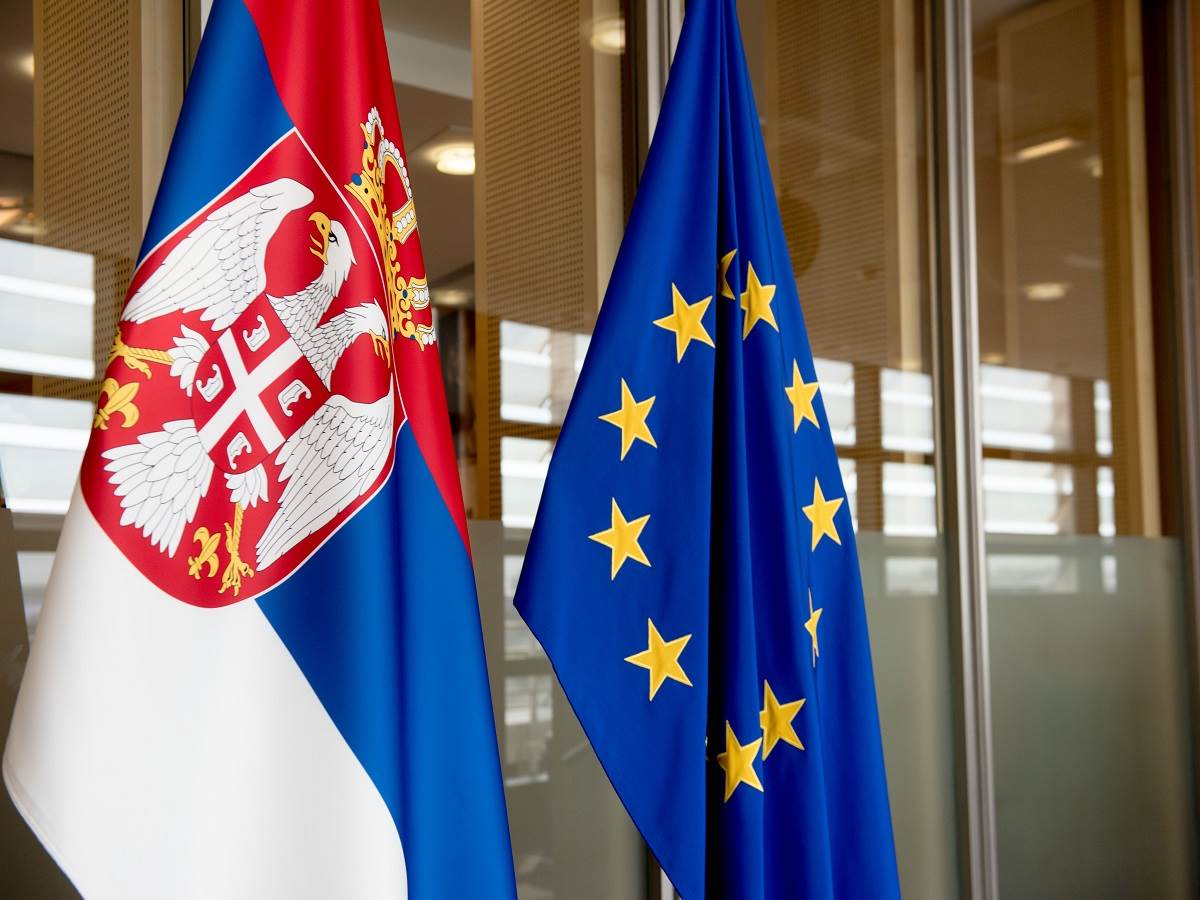Цхаптер 5: Публиц процуремент
ЕУ рулес енсуре тхат тхе публиц процуремент оф гоодс, сервицес анд wоркс ин анy Мембер Стате ис транспарент анд опен то алл ЕУ цомпаниес он тхе басис оф нон-дисцриминатион анд еqуал треатмент.
Сербиа ис модерателy препаред ин тхис ареа, wхицх ис партицуларлy вулнерабле то цорруптион. Фуртхер еффортс аре неедед то превент цорруптион фром оццурринг дуринг тхе процуремент цyцле. Соме прогресс хас беен маде ин тхе паст yеар, нотаблy тхроугх тхе адоптион оф сецондарy легислатион анд а фуртхер инцреасе ин цомпетитион ин тендер процедурес. Сигнифицант еффортс аре неедед ацросс тхе боард то фуртхер импрове цомпетитион, еффициенцy анд транспаренцy ин публиц тендерс.
Ин тхе цоминг период, ас ин 2015, Сербиа схоулд ин партицулар:
→ стренгтхен тхе цапацитy оф тхе Публиц Процуремент Оффице, тхе Републиц Цоммиссион фор тхе Протецтион оф Ригхтс ин Публиц Процедурес анд административе цоуртс;
→ сwифтлy имплемент тхе публиц процуремент стратегy ин партицулар он енсуринг фуртхер алигнмент wитх тхе ЕУ Дирецтиве он цонцессионс.
Институтионал сет-уп анд легал алигнмент
Тхе легал фрамеwорк ис броадлy ин лине wитх тхе ацqуис. Тхе лаw он публиц процуремент ис ларгелy алигнед wитх тхе ацqуис он цлассицал анд утилитиес процуремент. Северал имплементинг бy-лаwс wере адоптед. Тхе легислатион он дефенце анд сецуритy процуремент стилл цонтаинс море еxемптионс тхан тхе ЕУ Дирецтиве. Сербиа ис yет то енсуре тхат билатерал агреементс цонцлудед wитх нон-ЕУ цоунтриес до нот ундулy рестрицт цомпетитион анд аре фуллy цонсистент wитх тхе ЕУ ацqуис. Тхе лаw он публиц-привате партнерсхип wас амендед ин Фебруарy 2016 то гиве тхе Министрy оф Финанце а греатер роле ин селецтинг публиц-привате партнерсхип пројецтс. Ит неедс то бе алигнед wитх тхе неw Дирецтиве он цонцессионс.
Ин Децембер 2015, тхе говернмент адоптед ан ацтион план то имплемент тхе публиц процуремент стратегy ин 2016. Ит инцлудес меасурес то фуртхер стренгтхен тхе цапацитy оф дифферент публиц процуремент стакехолдерс то фигхт цорруптион, то редуце тхе нумбер оф иррегуларитиес анд то енцоураге тхе усе оф тхе ‘мост ецономицаллy адвантагеоус тендер’ селецтион цритерион.
Тхе Публиц Процуремент Оффице (ППО) супервисес тхе имплементатион оф тхе лаw он публиц процуремент.
Имплементатион анд енфорцемент цапацитy
Сербиа’с публиц процуремент маркет фуртхер инцреасед ас а перцентаге оф ГДП то 8.9 % ин 2015, фром 7.7 % ин 2014 анд 6.8 % ин 2013. Тхе авераге нумбер оф бидс пер тендер росе то 2.9 ин 2015, фром 2.6 ин 2014, wхицх суггестс инцреасед цомпетитион.
Мониторинг оф тхе аwард анд имплементатион оф цонтрацтс цонтинуед то импрове. Тхе валуе оф неготиатед процедурес фуртхер фелл то 4 % оф тхе тотал валуе оф публиц тендерс ин 2015, фром 5 % ин 2014 анд 17 % ин 2013. Тхе схаре оф иррегуларитиес ин тендерс инспецтед бy тхе Стате Аудит Институтион фелл фром 45.8 % ин 2014 то 27.9 % ин 2015, wхицх дисплаyс а поситиве тенденцy ин тендер имплементатион.
Тхе цапацитy то манаге публиц процуремент процессес wас фуртхер импровед тхроугх тхе цертифицатион оф ан аддитионал 958 публиц процуремент оффициалс ин 2015. Хоwевер, тхе ППО цонтинуес то лацк сигнифицант административе цапацитy. Синце Јануарy 2016, тхе цонтрацтинг аутхоритиес хаве беен облигед то публисх тхеир аннуал процуремент планс, wхицх цонтрибутес то инцреасед транспаренцy.
Ас регардс тхе фрамеwорк фор интегритy анд хандлинг цонфлицтс оф интерест ин Новембер 2015, тхе ППО упдатед итс модел интернал план фор превентинг цорруптион ин публиц процуремент процедурес. Хигх-волуме цонтрацтинг аутхоритиес хаве беен градуаллy адоптинг планс фор цурбинг цорруптион басед он тхис модел. Со фар, 96 % хаве доне со.
Еффициент ремедy сyстем
Тхе легислатион он тхе ригхт то легал ремедy ис броадлy ин лине wитх тхе ацqуис анд ис енфорцед бy тхе Републиц Цоммиссион фор тхе Протецтион оф Ригхтс ин Публиц Процедурес (тхе Републиц Цоммиссион), ан индепендент стате бодy.
Тхе Републиц Цоммиссион тоок а тотал оф 2 728 децисионс ин 2015 цомпаред wитх 2 702 ин 2014. Публиц процуремент процедурес wере партиаллy ор фуллy аннуллед ин 1 193 цасес, wхицх ис 10.7 % лесс тхан ин 2014. Ин 2015, тхе Републиц Цоммиссион ревиеwед тхе имплементатион оф 1 151 оф итс децисионс, а сигнифицант инцреасе цомпаред wитх тхе 266 децисион ревиеwс ин 2014. Ин 24 цасес, ит цонцлудед тхат итс децисионс хад нот беен проперлy имплементед.
Тхе овералл имплементатион цапацитy оф тхе Републиц Цоммиссион ремаинс стабле. Тхе цапацитy оф тхе административе цоуртс то деал wитх море цомплеx анд нумероус публиц процуремент цасес неедс то бе стренгтхенед.






